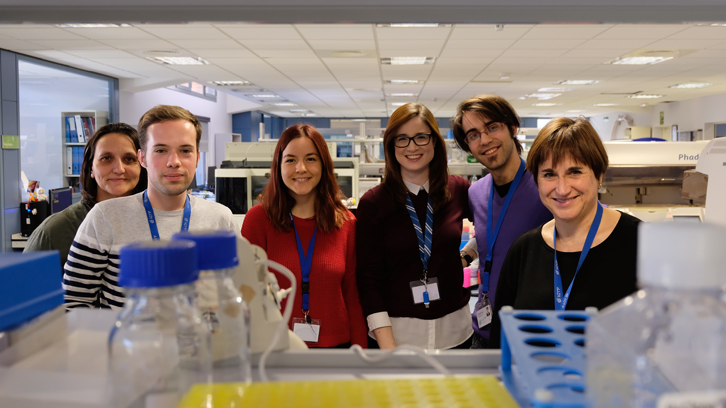New indications of prenatal environmental factors affecting risk of developing type 1 diabetes

Type 1 diabetes mellitus (T1D) is caused by the destruction of the pancreatic cells that produce insulin (β-cells), which are part of the mechanism that controls the storage and use of sugar in the blood. It is normally diagnosed in childhood or adolescence and the incidence is increasing by 4% per year. Both genetic and environmental factors play a role but the cause of the disease is still difficult to define.
Betamethasone is a widely used drug in pregnant women at risk of preterm delivery to improve the survival of new-borns. Previous studies have shown that it can affect the behaviour of the immune system cells. To assess the effect of betamethasone, the group used a type of mouse that spontaneously develops T1D and that is considered the experimental model for the study of the human disease.
This work, carried out by David Perna-Barrull, under the direction of Marta Vives-Pi in the Immunology of Diabetes Group at the IGTP (Institut d’Investigació Germans Trias i Pujol) in collaboration with researchers from the University Medical Center Hamburg-Eppendorf, has painstakingly looked at the effects of Betamethasone in the developing immune system. The results confirm a protection against T1D after betamethasone administration. Changes included alterations in white blood cells and the failure of some cells that participate in the autoimmune response causing T1D to mature. Moreover, the group described the effect of the drug on the β-cells, by reducing insulin secretion, and altering the expression of genes related to autoimmunity and metabolism. In summary, prenatal betamethasone exposure might alter the immune system and β-cells in developing mice, thus decreasing the risk of developing T1D in mice. Given the increase in the incidence autoimmune disorders in the last years, elucidating the mechanisms of action of prenatal glucocorticoids will help to design prevention strategies.
Universitat Autònoma de Barcelona
References
Perna-Barrull, David & Rodríguez Fernández, Silvia & Pujol-Autonell, Irma & Gieras, Anna & M. Ampudia-Carrasco, Rosa & Villalba, Adrián & Glau, Laura & Tolosa, Eva & Vives-Pi, Marta. (2019). Prenatal Betamethasone interferes with immune system development and alters target cells in autoimmune diabetes. Scientific Reports. 9. DOI: 10.1038/s41598-018-37878-9.


